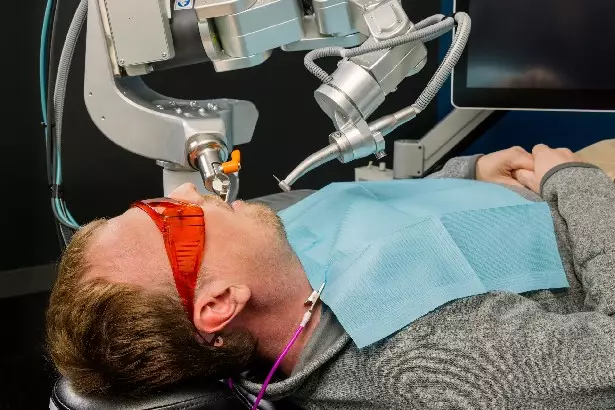A robot dentist successfully performed an operation 8 times faster than a human
04.08.24
Boston-based Perceptive has made a breakthrough in dentistry by introducing an artificial intelligence system that performed the world’s first fully automated dental procedure on a human. The robot dentist has significantly accelerated the process, performing the operation eight times faster than a traditional specialist.
The system uses a handheld 3D volumetric scanner that creates a detailed three-dimensional model of the oral cavity. Using optical coherence tomography (OCT), the scanner captures images of teeth, gums, and even nerves beneath the tooth‘s surface. This avoids the use of harmful X-ray radiation, instead of which light rays are used to build high-precision models.
A robot dentist’s first specialty is preparing a tooth for a crown, a procedure that usually takes about two hours and requires two visits to the doctor. The Perceptive system performs this procedure in about 15 minutes, significantly reducing the patient’s time in the dentist’s chair. The developers claim that the system is able to work safely even when the patient is actively moving, which is confirmed by successful test trials.
Although a robotic dentist may seem unusual, the technology promises many benefits: reduced procedure time, reduced patient burden, and potentially lower treatment costs. However, the system has not yet received FDA approval, and Perceptive has not specified a specific timeline for its implementation.
Don't miss interesting news
Subscribe to our channels and read announcements of high-tech news, tes
Review of Samsung Galaxy A36 and Galaxy A56 smartphones: in a shadow of light

The Samsung Galaxy A36 and Galaxy A56 have equally good displays, large batteries, and support for software updates for 6 years. Let’s talk in more detail about what else makes them interesting.
LG UltraGear GX9 with curved OLED displays and 240Hz refresh rate LG monitor OLED
LG has launched a new series of UltraGear GX9 gaming monitors, which combines three models with curved OLED displays.
iPhone will become 43% more expensive due to Trump tariffs Apple
After the Trump administration imposed massive tariffs, Apple was at risk of serious financial losses.


